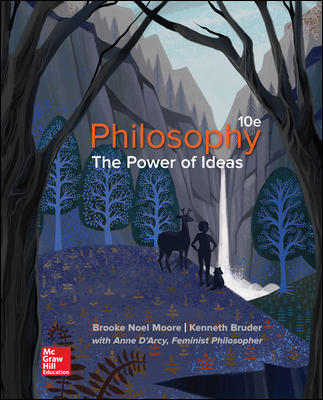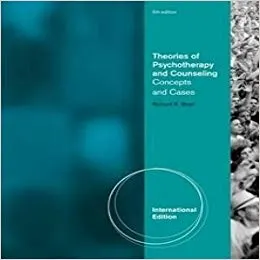Description
Test Bank For Philosophy The Power Of Ideas 10Th Edition By Brooke Noel
Chapter 03
Socrates, Plato
Multiple Choice Questions
1. The most famous dialogue of Plato is _____, from the so-called middle period of Plato’s writings, during which Plato reached the peak of his genius.
A. the Republic
B. the Apology
C. the Meno
D. the Gorgias
Accessibility: Keyboard Navigation
2. Which of the following dialogues of Plato gives the best-known account of the Theory of Forms?
A. the Apology
B. the Republic
C. the Meno
D. the Gorgias
Accessibility: Keyboard Navigation
3. What did Socrates hope to achieve by practicing the Socratic method?
A. He hoped to show that knowledge is impossible.
B. He wanted to show that a skillful debater could win any side of any argument.
C. He wanted to display the fact that he was indeed the wisest man in all of Greece.
D. He wanted to detect misconceptions and reveal them by asking the right questions.
Accessibility: Keyboard Navigation
4. Which of the following statements would Plato have agreed with?
A. The senses alone can provide knowledge.
B. Physical objects are eternal, perfect, and unchanging.
C. Man is the measure of all things.
D. The senses are a source of error, illusion, and ignorance.
Accessibility: Keyboard Navigation
5. Plato’s three famous theories are as follows:
A. the Theory of Forms, the Theory of Knowledge, and the Theory of the Oracle.
B. the Theory of Fire and Becoming, the Tunnel Theory, and the Theory of Knowledge.
C. the Theory of Becoming, the Theory of Relativity, and the Theory of the Absolute Truth.
D. the Theory of Knowledge, the Theory of Love and Becoming, and the Theory of Forms.
Accessibility: Keyboard Navigation
6. When the Delphi Oracle pronounced Socrates to be the wisest of people, Socrates thought the pronouncement referred to the fact that he:
A. was aware of the ignorance of most other philosophers.
B. was aware of his ignorance.
C. was aware of everything and nothing.
D. never wrote anything.
Accessibility: Keyboard Navigation
True / False Questions
7. Sometimes Plato’s Forms are referred to as Ideas, and the Theory of Forms is also said to be the Theory of Ideas.
TRUE
Accessibility: Keyboard Navigation
8. The Socratic/dialectic method is a search for the proper definition of a thing, a definition that will not permit refutation under Socratic questioning.
TRUE
Accessibility: Keyboard Navigation
9. Plato believed that some forms, especially the Forms “truth”, “beauty”, and “goodness”, are of a higher order than other Forms.
TRUE
Accessibility: Keyboard Navigation
10. Platonic dualism was utterly rejected by early Christianity.
FALSE
Accessibility: Keyboard Navigation
11. Cratylus thought that one couldn’t step into the same river even once.
TRUE
Accessibility: Keyboard Navigation
12. Protagoras was rejecting absolute knowledge when he said that man is the measure of all things.
TRUE
Accessibility: Keyboard Navigation
13. Plato believed that it is enough to know the truth.
FALSE
Accessibility: Keyboard Navigation
14. Socrates did not merely engage in sophistry—he was not interested in arguing simply for the sake of arguing.
TRUE
Accessibility: Keyboard Navigation





Be the first to review “Test Bank For Philosophy The Power Of Ideas 10Th Edition By Brooke Noel”